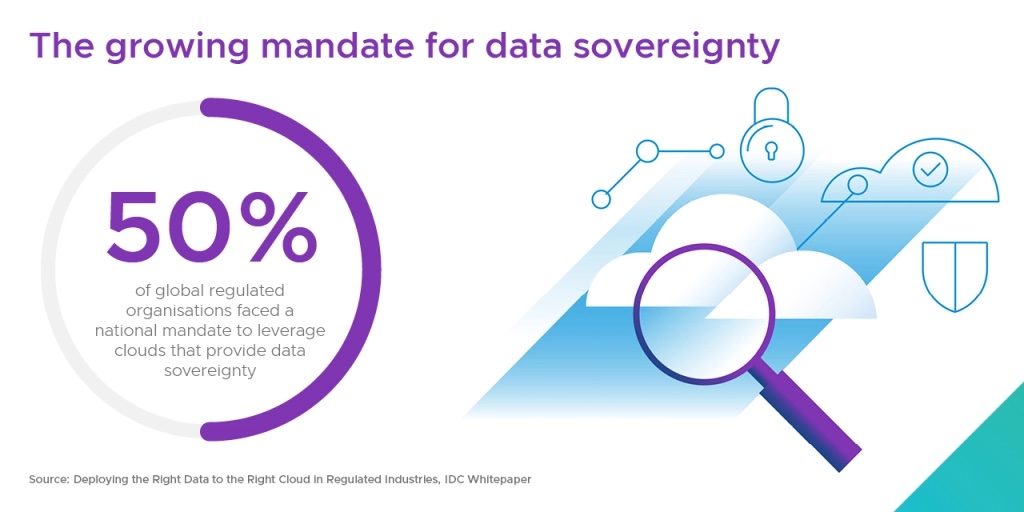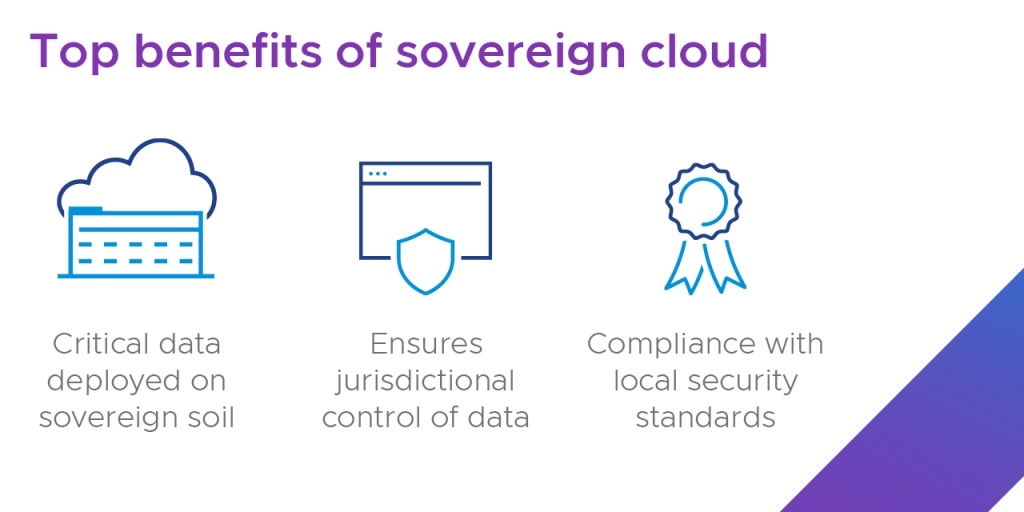The National Stock Exchange of India (NSE) is the second-largest electronic stock exchange in the world. When the NSE set out to modernise its IT infrastructure by moving to the cloud, it quickly realised the many benefits of multi-cloud — agility, scalability and resiliency. It was also able to ensure security through micro-segmentation in a multi-cloud environment.
Deploying to a multi-cloud infrastructure enabled NSE software developers to create cloud-native apps rapidly and deliver innovative customer experiences. It helped NSE future-proof its operations and stay competitive in an ever-changing financial landscape.
Enterprises around the world — and across our region — are increasingly taking advantage of the many benefits of a multi-cloud infrastructure, which include increased performance and savings.
The VMware FY22 H2 Benchmark Study on Digital Momentum found that 73% of enterprises already use two public clouds and 26% use three or more. By 2024, 81% of enterprises expect to be multi-cloud.
The rise of multi-cloud, however, presents some new challenges for enterprises — especially the ones impacted by increasing regulation on jurisdictional control of data.
Growing Concern with Data Sovereignty
Data privacy and residency regulations, such as General Data Protection Regulation (GDPR) in Europe, are also being implemented in several other countries. According to the United Nations Conference on Trade and Development (UNCTAD), 80% of countries worldwide have enacted or drafted data privacy legislation, with analyst firm IDC projecting that half of all European organisations will spend 10% of their IT budgets to comply with sovereignty rules adopted in the EU.

Meanwhile, in our region, Brunei, China and Indonesia all have strict requirements that data must be stored on servers within the country itself. And India and Malaysia have localisation regulations that apply to certain domain names and around requirement of consent before personal data is transferred across borders. In Australia and New Zealand, data localisation regulations apply to certain industries.
An IDC global report found that 50% of surveyed organisations in regulated industries, including the public sector, financial services and healthcare, faced a national mandate to leverage clouds that provide complete data sovereignty. In addition, 62% of respondents stated they needed a cloud option that provided data sovereignty with complete jurisdictional control and authority over data.
Behind this need is a very clear concern around data sovereignty across regulated industries. 58% of healthcare respondents were very concerned that data (and metadata) on a commercial public cloud may not remain on sovereign soil. In other industries, 43% of education, financial services and government respondents had similar sovereignty concerns.

These concerns are making “sovereign cloud” an important addition to an enterprise’s multi-cloud strategy.
Benefits to the Enterprise and the Economy
Sovereign cloud helps an enterprise tap into the power of the cloud while meeting regulatory requirements around data privacy, security and sovereignty.
Some of the key benefits of a sovereign cloud are:
- Critical data, including metadata, is deployed on a sovereign cloud located in the nation where it is collected.
- Data is subject to only the laws and regulations of the jurisdiction within which it is collected.
- Enhanced security controls help comply with specific security frameworks and compliance standards.
- Data is operated by certified staff, typically citizens with security clearance.
- There is decreased dependence on non-sovereign providers with flexibility to use them for non-critical data storage and management.
- Critical data is used to drive innovation through advanced services like AI and ML while ensuring sovereignty.
- Improved ability to provide differentiated services which are secure and legally compliant.
By integrating sovereign cloud into its multi-cloud strategy, an organisation can benefit from increased flexibility by avoiding vendor lock-in and future-proofing its data operations.
Organisations should also approach sovereign cloud as complementing their deployments on public or hyperscaler clouds. This helps them take advantage of the breadth of services on offer across clouds. For example, the data on a sovereign cloud can be transferred to a public cloud to avail of its advanced analytics services, while ensuring adequate security measures are in place to protect the analytics outcome.
A Platform for Innovation
While at its core, sovereign cloud is about protecting critical national data, governments are increasingly recognising its importance in enabling economic growth and innovation. With Europe quickly evolving into a digital economy, policy-makers are now looking to protect investments in data spaces, and sovereign cloud can ensure data is stored and managed in compliance with local security and privacy regulations.
With the rapid digitalisation of economies in the Asia Pacific region, national law-makers are likely to increasingly view sovereign cloud as an important investment in unlocking local economic potential.
A Disaster Recovery Solution
While managing sovereign data, reliable disaster recovery is vital. With users now expecting 24/7 availability of digital services, network reliability and resilience are more critical than ever. When a server goes down due to a natural disaster, equipment failure, unplanned outage or a cyberattack, organisations need to recover lost data from a secondary location where it is backed up.
With Disaster Recovery-as-a-Service (DRaaS) on sovereign cloud, organisations can have peace of mind that all their critical data is backed up on sovereign infrastructure without compromising on data integrity. With fail-over to services in a sovereign cloud environment, optimal business continuity is ensured. And with the growing need for sovereign cloud due to data security and digital sovereignty regulations such as GDPR, this trend will continue to gain momentum.
Local Providers Serve Local Needs
In nascent cloud adoption markets with limited access to hyperscalers, such as Vietnam, Laos, Cambodia and Myanmar, local sovereign cloud providers can help fulfil the data sovereignty and regulatory compliance requirements of enterprises. A secondary benefit of adopting local cloud providers is the contribution to the sustainable growth of local communities and a nation’s economy.

Thousands of partners under the VMware Cloud Provider Program (VCPP) already offer a wide range of cloud services on a geographical basis. The VMware Sovereign Cloud Initiative, unveiled at VMworld 2021, extends the VCPP offering. Under this initiative, enterprises connect with VMware Sovereign Cloud designated partners to protect their critical data and unlock its potential.
VMware Sovereign Cloud Partners in our region are already leading the way in helping organisations achieve and maintain data sovereignty. AUCloud and Datacom are helping ensure data security and sovereignty for government and enterprise customers across Australia and New Zealand. Telco services and VMware Cloud Provider, Macquarie Telecom Group is also now a VMware Sovereign Cloud Partner offering data residency and sovereignty solutions to Australian organisations.
NxtGen’s Sovereign Cloud is supporting government agencies and companies in India to comply with the nation’s demanding data sovereignty and data security requirements. Electronics giant Hitachi is now a VMware Sovereign Cloud Partner offering data residency and sovereignty solutions to organisations in Japan.
Managing Complexity
While there are many distinct benefits to sovereign cloud, it can add to the complexities of managing an organisation's multi-cloud infrastructure.
Not all data is the same. Deploying the right data to the right cloud is critical in managing multi-cloud. With our demonstrated leadership in multi-cloud services, VMware is uniquely positioned to help organisations simplify complexities as they navigate their data sovereignty journey.
Sovereign cloud can empower organisations to innovate while protecting critical data in a changing geopolitical landscape. That is why the future of multi-cloud for an organisation must include sovereign cloud.

